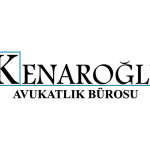Vona Law Firm’s Gül Özdinç sets out a criticism of the European Council’s new regulation concerning restrictions on Turkey
The European Council adopted a framework for restrictive measures against Turkey for its drilling activities in the Eastern Mediterranean with Regulation (EU) No 2019/1890 of 11 November 2019.
The framework will make it possible to sanction individuals or entities responsible for or involved in drilling activities of hydrocarbons in the area. The sanctions consist of a travel ban to the EU, and an asset freeze for persons and for entities. And yet the framework did not refer to any names of individuals and entities. According to the regulation, the definition will be based on the following items:
a) Being responsible for or involved in, including by planning, preparing, participating in, directing, or assisting, drilling activities in relation to hydrocarbon exploration and production, or hydrocarbon extraction resulting from such activities, which have not been authorised by the Republic of Cyprus within its territorial sea, in its exclusive economic zone or on its continental shelf, including in cases where the exclusive economic zone or continental shelf has not been delimited in accordance with international law with a state having an opposite coast, activities which may jeopardise or hamper the reaching of a delimitation agreement.
b) Providing financial, technical or material support for drilling activities in relation to hydrocarbon exploration and production, or hydrocarbon extraction resulting from such activities, referred to in point (a).
c) Being associated with the natural or legal persons, entities or bodies referred to in points (a) and (b).
The regulation refers to funds and economic resources together: cash, securities, bonds, rights of set-off, letters of credit and bills of lading, and any kind of asset, whether tangible or intangible, movable or immovable, which are not funds but may be used to obtain funds, goods or service.
The regulation aims to prohibit almost all commercial activities with sanctioned individuals or entities, unless authorised by the regulation or by the relevant competent authority. The competent authorities may authorise the release of certain frozen funds or economic resources under such conditions as they deem appropriate according to the regulation.
It is obvious that both parties need each other: whereas the European bloc needs to co-operate with Turkey on migration, NATO, countering terrorism and energy transmission, Turkey needs the EU to continue its commercial activities. Our consideration is that the regulation violates international law and procedures of the UN Security Council, and we believe that the related parties will finally reach a common understanding that may satisfy all parties looking from different perspectives.
Currently, the EU has not published a name list and we do not see a practical reason not to continue trading with Turkey. However, Vona recommends its clients prepare their security nets by defining counterparties that could be a potential target of the sanctions and analysing the risks under the current relations, and setting out a plan B in case the counterparty is listed by the council.
For more information, please contact:Gül Özdinç, partner
Vona Law Firm
Caddebostan Mah Prof Dr Hulusi Behçet
Cad No: 14 K: 7 D: 8
Kadıköy
34728 Istanbul
E: gul@vonahukuk.com
T: +90 216 372 2816 (E: 23)















